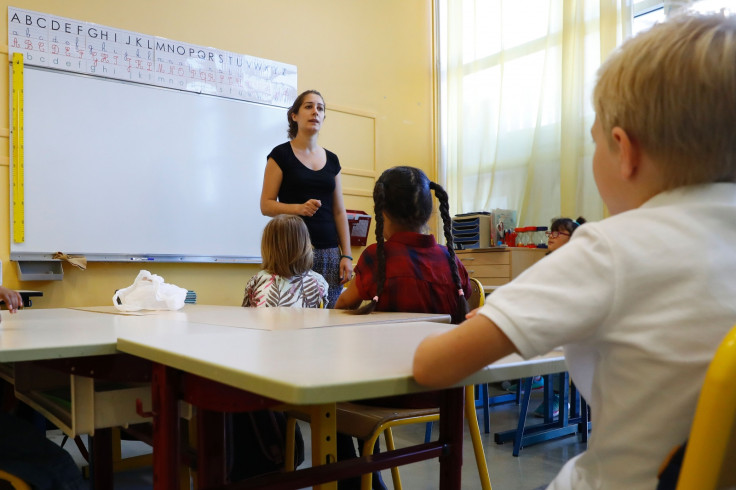Australian state to teach students about 'male privilege'
The Victorian government has launched the $21.8m programme to combat 'family violence'.

The Australian state of Victoria has launched a curriculum for school students that will help them understand "male privilege". The A$21.8m (£13.5m; $16.5m) programme will teach how "masculinity" encourages "control and dominance" over women.
Expected to be in all schools of the state from 2017, the "respectful relationship" curriculum will help students explore issues around social inequality, gender-based violence and family violence.
Pay inequality, anger management, sexual orientation and the dangers of pornography will also be among the topics taught in this new initiative.
Talking about the programme, Victoria's Education Minister James Merlino said education is the key to ending the "vicious cycle" of family violence. "This is about teaching our kids to treat everyone with respect and dignity so we can start the cultural change we need in our society to end the scourge of family violence," he said.
Under the programme, primary school students will be shown pictures of both boys and girls doing household chores, playing sport and working as firefighters and receptionists. Also, the study material in the curriculum includes statements like — "girls can play football, can be doctors and can be strong" and "boys can cry when they are hurt, can be gentle, can be nurses and can mind babies".
However, the programme of study for high school students will be slightly different. They will be taught the meaning of terms like pansexual, cisgender and transsexual.
"Being born a male, you have advantages — such as being overly represented in the public sphere — and this will be true whether you personally approve or think you are entitled to this privilege," a guide for Year 7 and 8 students said.
It describes privilege as "automatic, unearned benefits bestowed upon dominant groups" based on "gender, sexuality, race or socio-economic class".
While study material prescribed for Year 11 and 12 students mentions the concept of "hegemonic masculinity" which "requires boys and men to be heterosexual, tough, athletic and emotionless, and encourages the control and dominance of men over women".
But the initiative by the Victorian state has not gone well with some. Reports claimed that the programme risks alienating men — by presenting all men as "bad" and all women as "victims".
Jeremy Sammut, a senior research fellow at the Centre for Independent Studies, criticised the programme, calling it "taxpayer-funded indoctrination" of children.
"The idea behind this program — that all men are latent abusers by nature of the 'discourse' — is an idea that only cloistered feminist academics could love. A lot of evidence suggests that like child abuse, domestic violence is a byproduct of social dysfunction: welfare, drugs, family breakdown," Sammut told The Australian.
Kevin Donnelly, a senior research fellow at the Australian Catholic University, claimed the curriculum is biased and unbalanced.
"There's no doubt that women are overwhelmingly the victims of domestic violence and more needs to be done. The royal commission found that 25 per cent of victims of family violence are men and there's little, if anything, in there that acknowledges the impact of violence on men and young boys," Donnelly asserted.
© Copyright IBTimes 2025. All rights reserved.



















